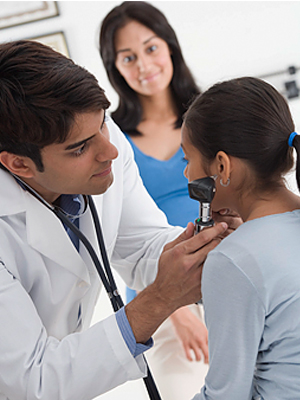Blog
Clinical Trials and Cerebral Palsy: The Basics

Parents of children with cerebral palsy spend incredible amounts of time and energy searching for the latest therapies and advancements in medicine that will benefit their child, but how much do you know about the research process that occurs in bringing therapies and medicines to market?
There are hundreds of clinical trials being conducted in universities and hospitals around the world in a quest to find medications, therapies, and surgical interventions that will improve the quality of life of children and adults with cerebral palsy. It’s with increased frequency that we encounter breaking news stories of the positive impact new medical discoveries are having on the lives of children with CP. Many of these life-changing interventions started with clinic trials.
Here are some of the basics you need to know.
What is a Clinical Trial?
Clinical trials are research studies that explore whether a medical treatment or device is safe and effective for humans. These studies also may show which medical approaches work best for certain illnesses or groups of people. Clinical trials produce the best data available for health care decision making. Clinical trials are conducted at medical centers, hospitals, universities, and private facilities all over the world. The investigator in charge of the study must ensure that all clinical administrators, no matter where they are, are conducting the trial(s) in exactly the same manner.
All FDA approved clinical trials are conducted in 4 phases and can last for many years.
- Phase I: Screening for safety. A small number of patients and healthy volunteers (20-80) test a drug/procedure for safety, tolerance, dosage range, and side effects.
- Phase II: Screening for effectiveness. Also involving a small number of patients (100-300) to determine the short- and long-term effect on a patient’s cerebral palsy.
- Phase III: Comparative results. To determine how new treatments compare to the standard treatments already in place, these trials may be conducted on hundreds or thousands of patients on a much larger scale, sometimes even nationwide.
- Phase IV: Postmarketing studies. To further delineate risks, benefits and optimal use.
Why Are Clinical Trials Important?
Clinical trials are a key research tool for advancing medical knowledge and patient care. Clinical research is done only when doctors don’t know how to treat a disease or condition.
Who Can Participate in Clinical Trials?
Each clinical trial defines who is eligible to take part in the study. Each trial must include only people who fit the patient traits for that study (the eligibility criteria). For more information about eligibility criteria, go to “How Do Clinical Trials Work?” Some trials enroll people who have a specific disease or condition. Others enroll healthy people to test new approaches to prevention, diagnosis, or screening.
Children and Clinical Trials
Pediatric clinical research networks (PCRNs) have been existence for over five decades with pediatric oncology community establishing the first networks in the 1950s. Now networks exist across continuum of care (primary, secondary, and tertiary care), across specialties (oncology, nephrology, neurology, etc), and across several countries.
Should Your Child Participate in a Clinical Study?
Parents and caregivers have many questions when considering enrolling a child in a clinical study and many times children and adolescents also want to know what they will go through. The NIH provides helpful resources that provide information on why clinical studies are important, how children might benefit from participation, and what you should think about before, during, and after joining a study.
To help with a child’s understanding is a newly launched video game called “The Paper Kingdom,” The game is aimed at kids ages 8-14 and helps dispel myths and misconceptions about medical clinical trials. The game was officially launched this week on the website of the National Heart, Lung, and Blood Institute (NHLBI), part of the National Institutes of Health. It is available as a free download from the Children and Clinical Studies website and is rated “E” for everyone.
In part 2 of this article, we address what current clinical trials are addressing CP and where to find clinical trials in your area.
